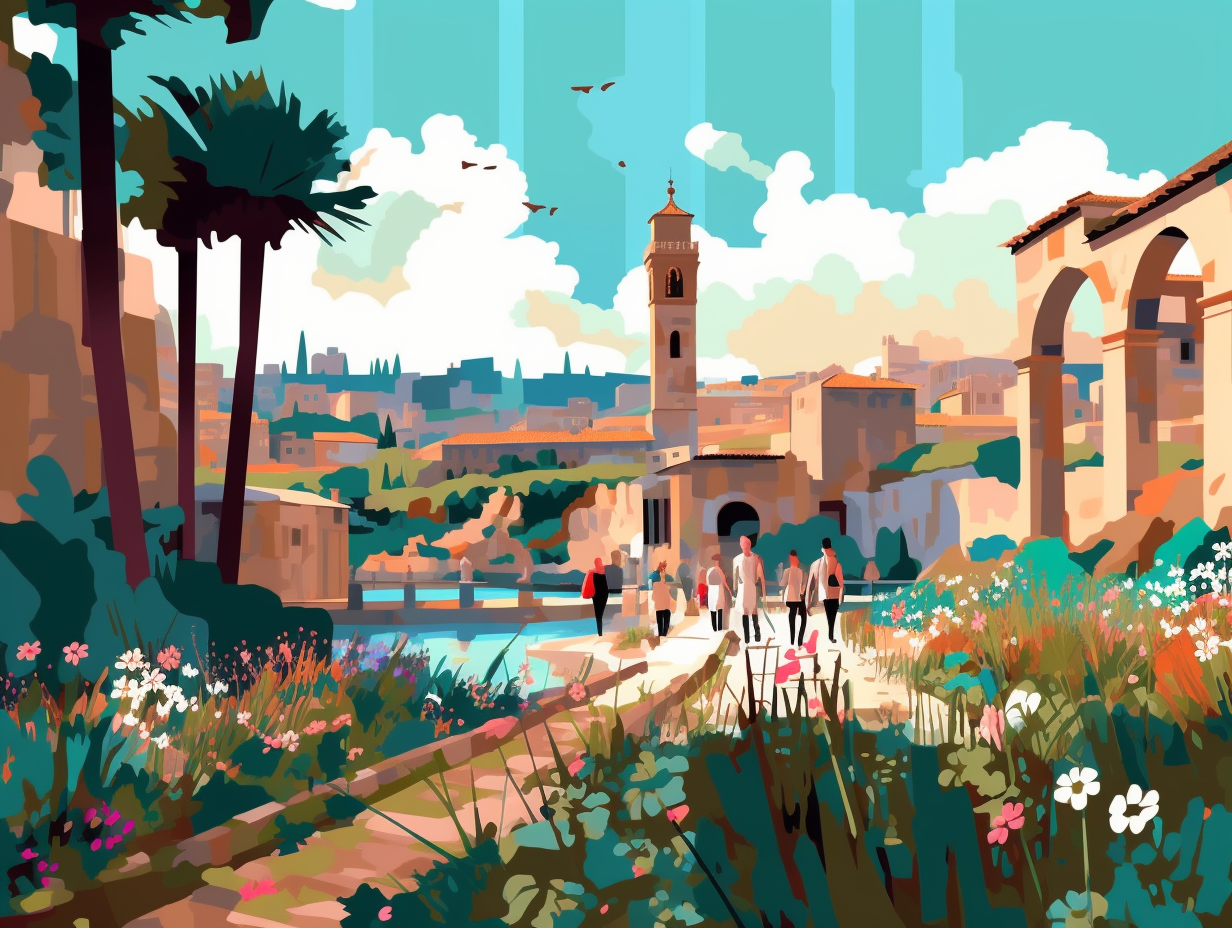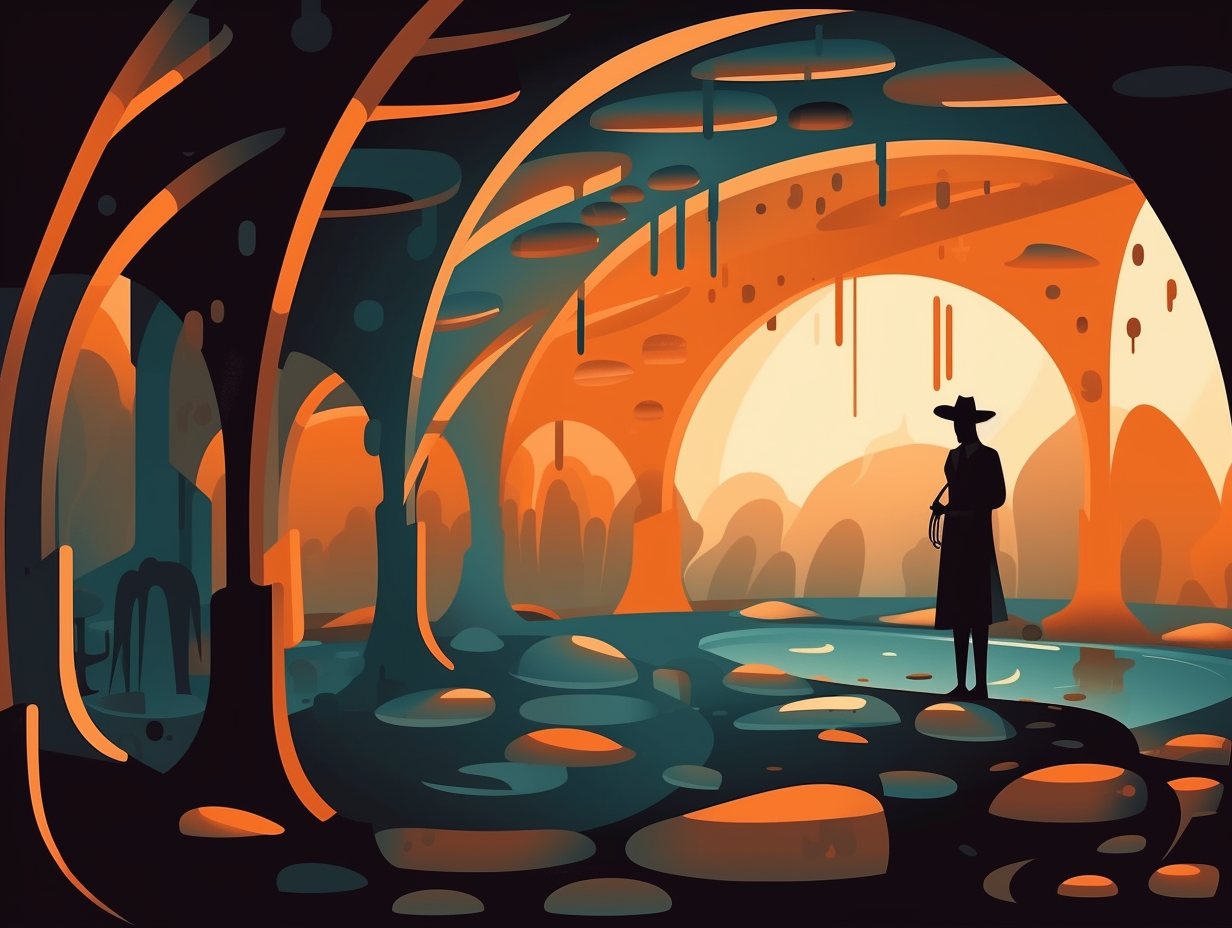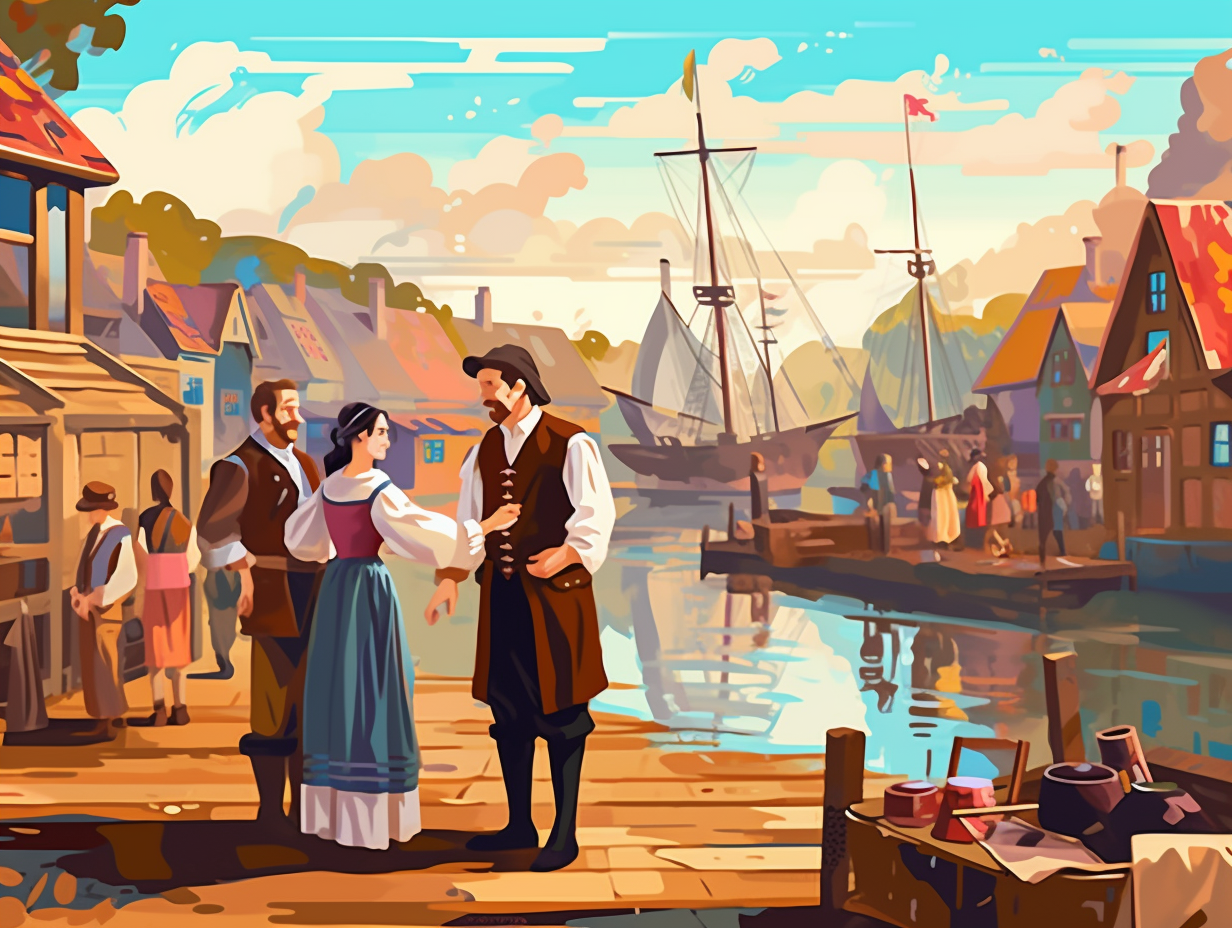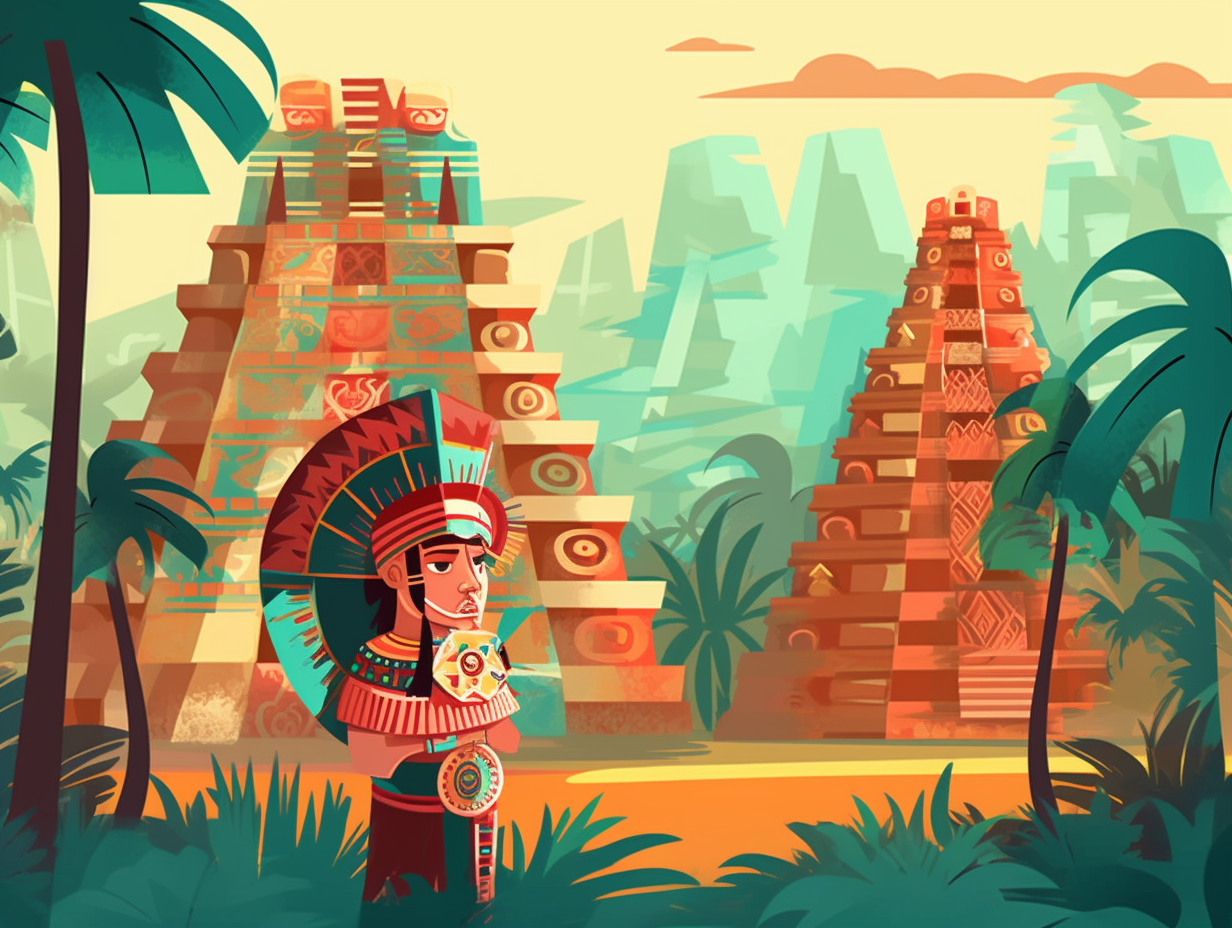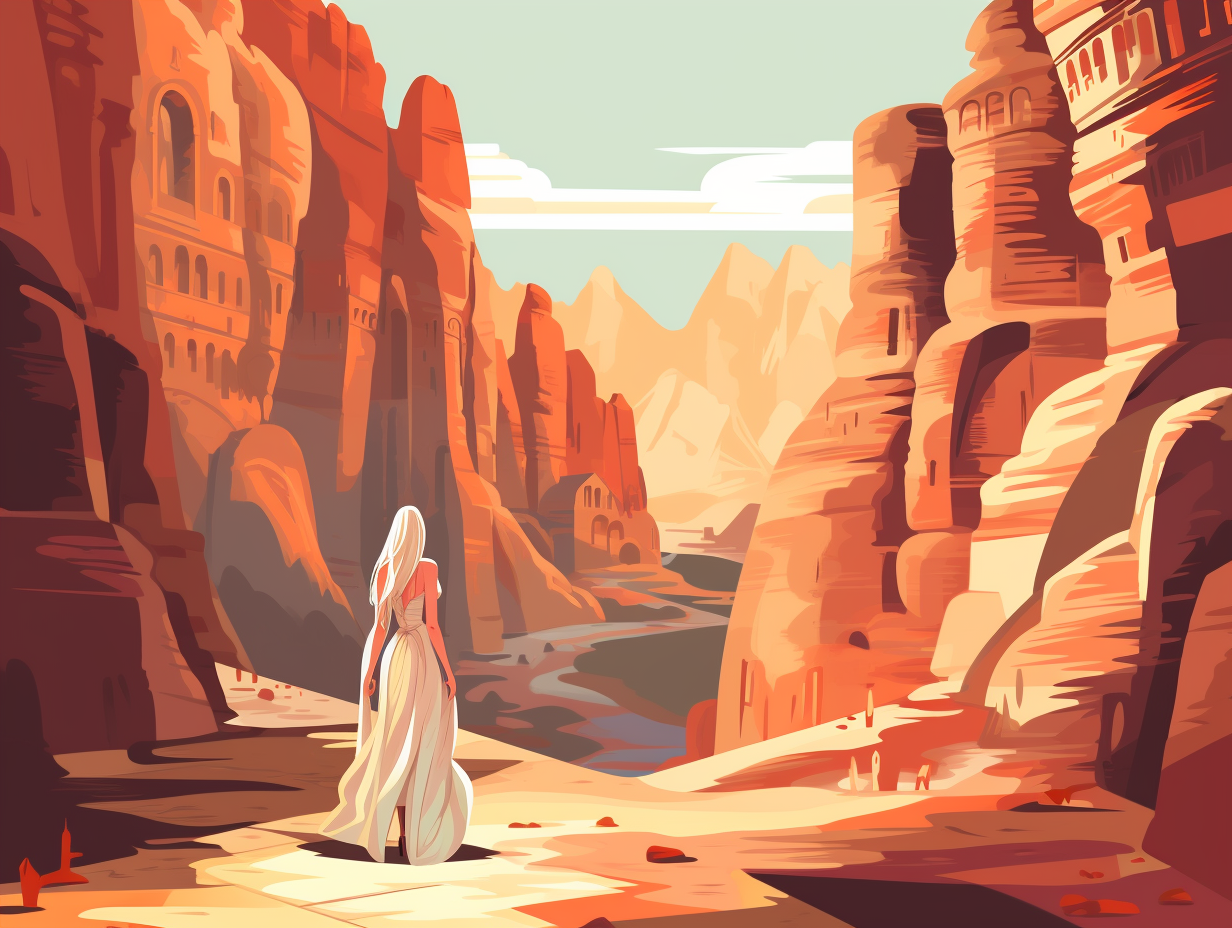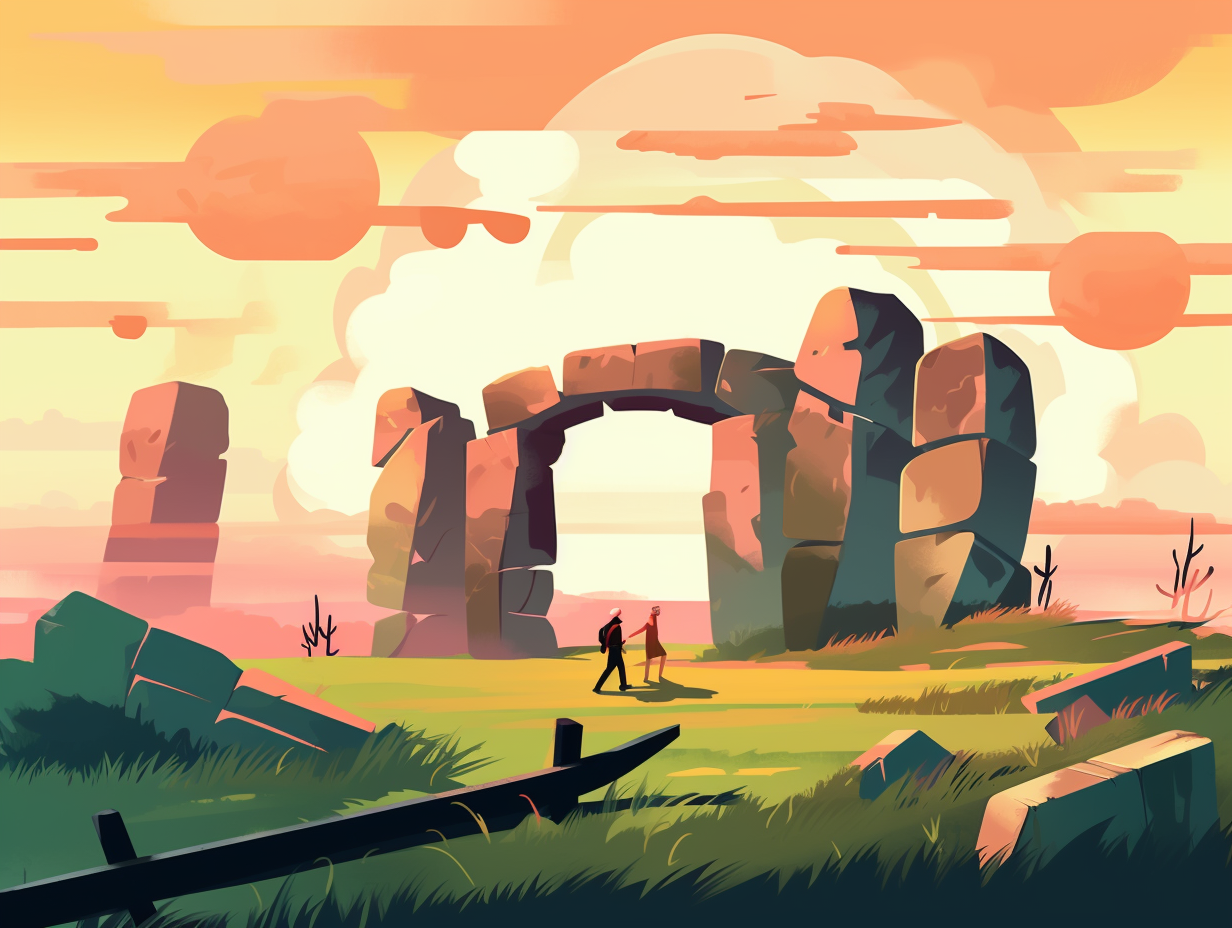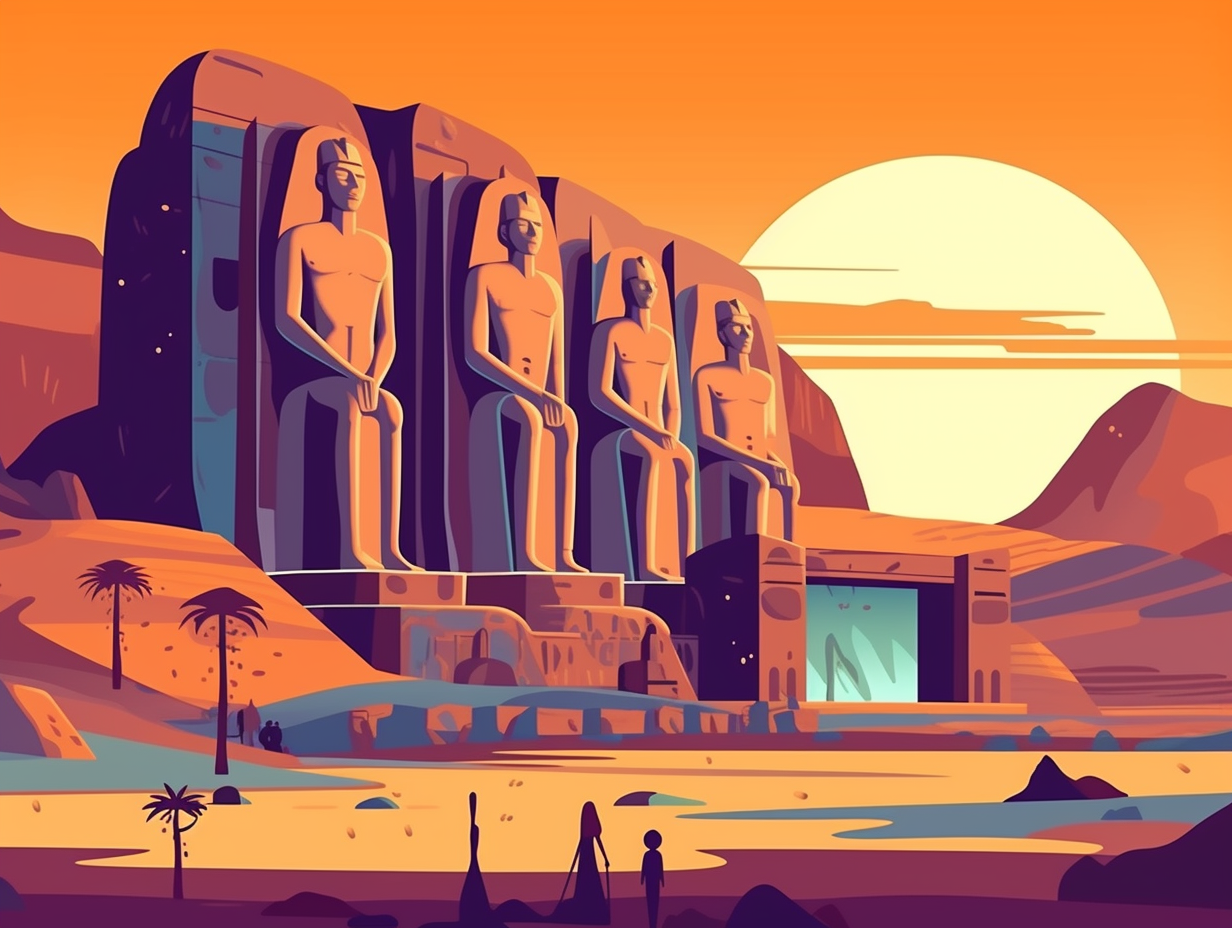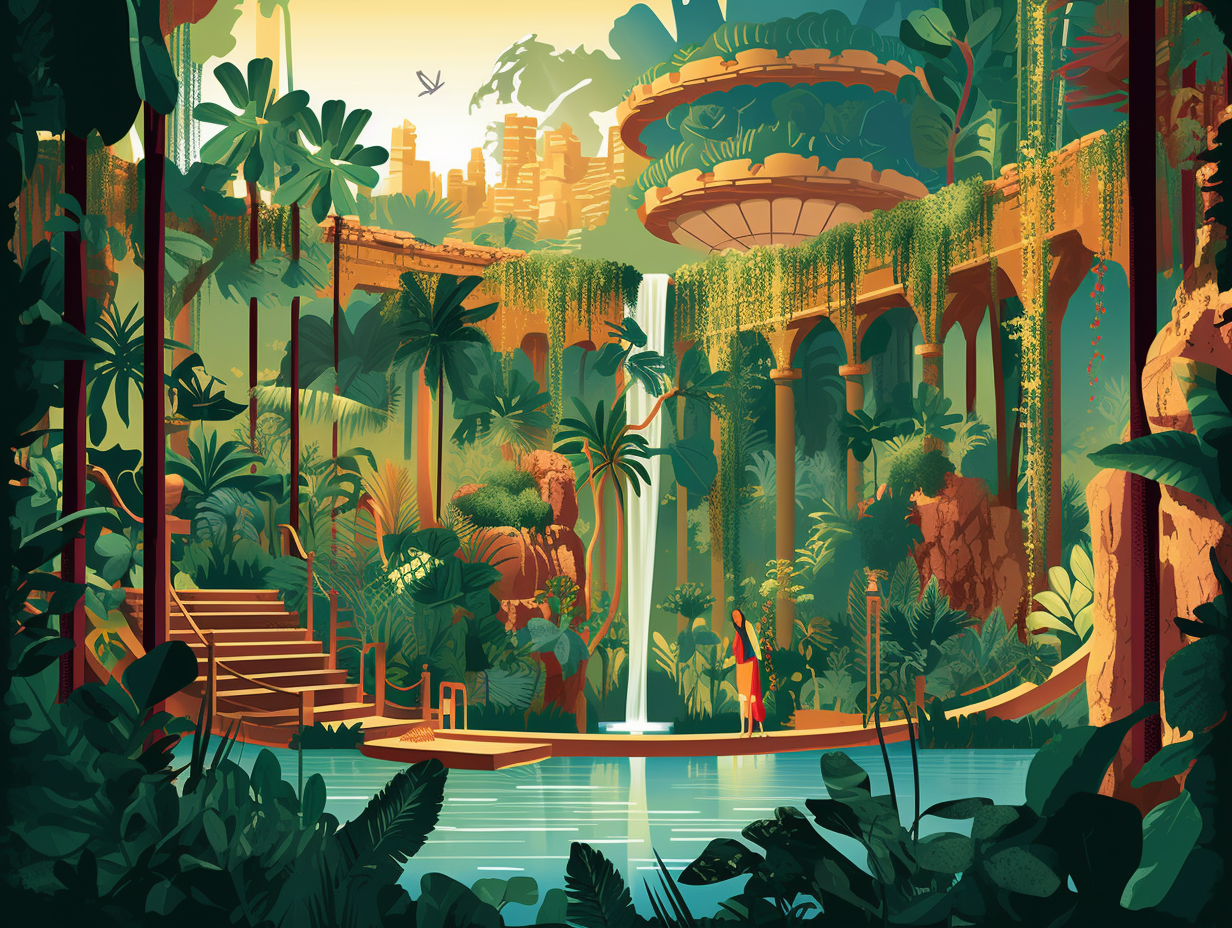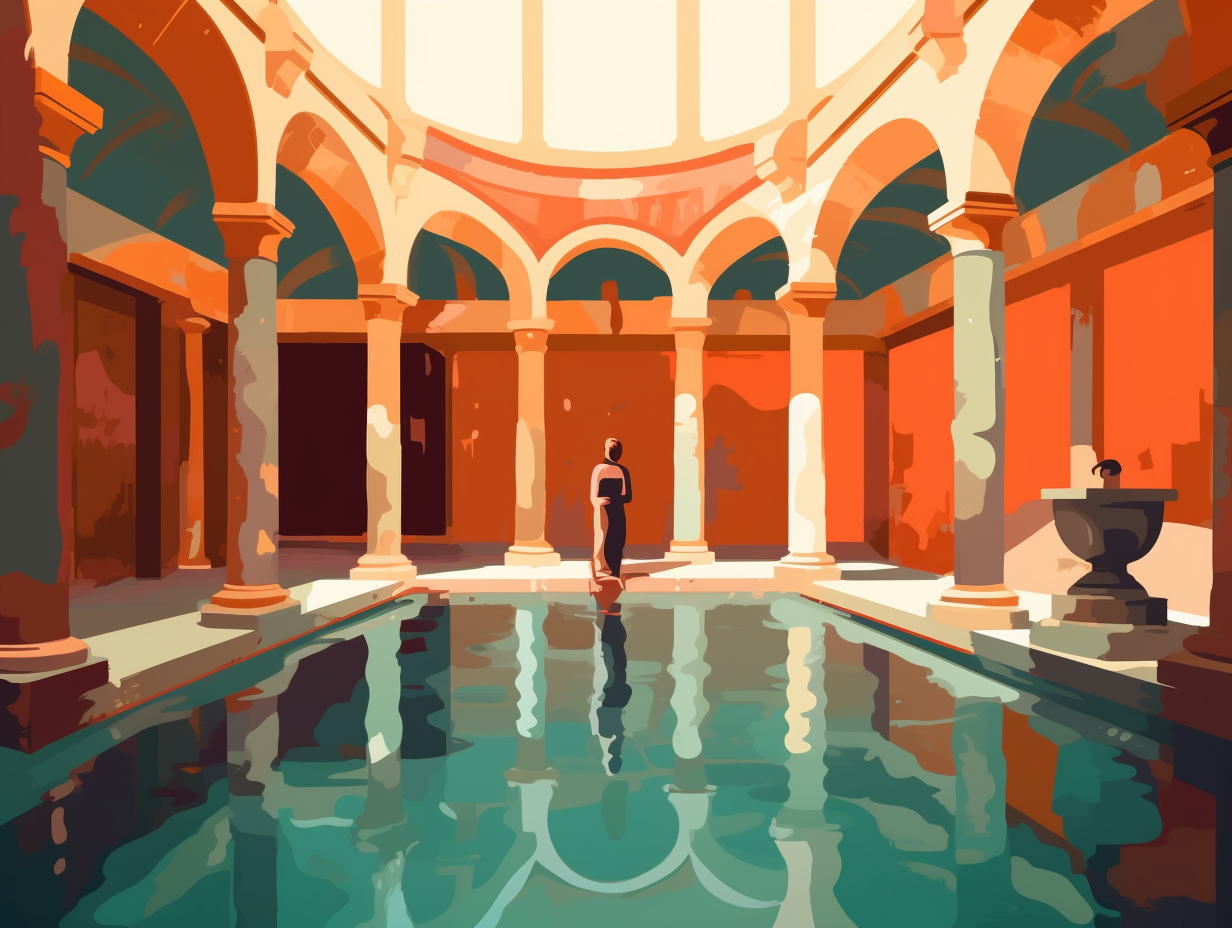Discover the Unseen: Top 12 Fascinating Fun Facts About Pompeii Unearthed!
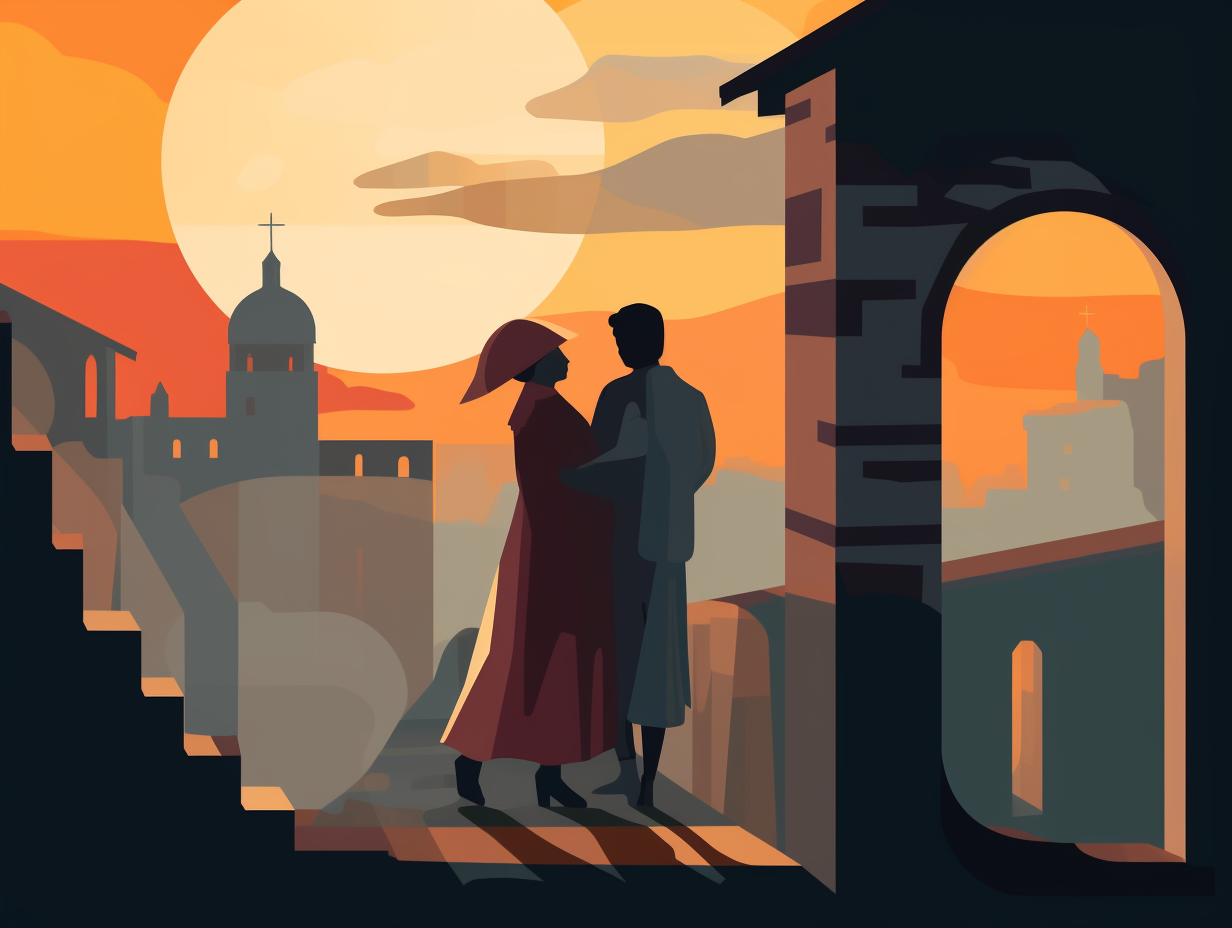
1. Fresco Frenzy
While Pompeii's ancient residents may not have had the renowned "Mona Lisa Smile," they were fresco-ly painting the town red before it became volcanic ash chic: Archaeological discoveries suggest that despite the catastrophic eruption of Mount Vesuvius in A.D. 79, the people of Pompeii were quite adept at fresco paintings, which then had to endure multiple restoration attempts and hardships spanning centuries due to several factors like financial limitations and natural or human-induced damages.
Source => en.wikipedia.org
2. Plight of Pompeii Plumbing
Pardon the plumbing pun, but it seems Pompeii's pipes couldn't make the "leap" to keep up with its Roman counterparts; things in the ancient city just didn't always go "with the flow": Pompeii's residents, except for the wealthiest few, had to rely on public fountains for their water needs, as private homes lacked the famously advanced Roman aqueducts and sewage systems found in other cities.
Source => romesightseeing.net

Discover how Mount Vesuvius showcased its "special skill" in 79 AD, burying entire cities and changing the course of history – even inspiring a hero's sacrifice! 🌋🏛️💥
=> Fun Facts about Mount-Vesuvius
3. Roman Adult Shenanigans
Knock, knock, who's there? Ancient Roman sexual escapades: Pompeii's Brothel, the only surviving purpose-built Roman establishment for adult shenanigans, housed lewd Latin graffiti that showcased a mix of male competitive banter and names of renowned ladies of the night. Unearthed in 1862, this risqué rendezvous point lay between the city's forum and key business district, where the cheeky inscriptions offered a peek into a world of enslaved sex workers providing both emotional and physical comfort, despite the legal and social stigma of the era.
Source => historytoday.com
4. Pompeii's Street Art Ancestors
Talk about ancient social media: Pompeii was way ahead of its time, with over 5000 graffiti on its walls! These ancient scribbles offered insights into the lives of Romans, featuring everything from personal messages and business deals to gossip and cheeky drawings. The graffiti, found in popular spots and even inside homes, challenges our modern assumptions about street art being illegal and taboo.
Source => blog.degruyter.com
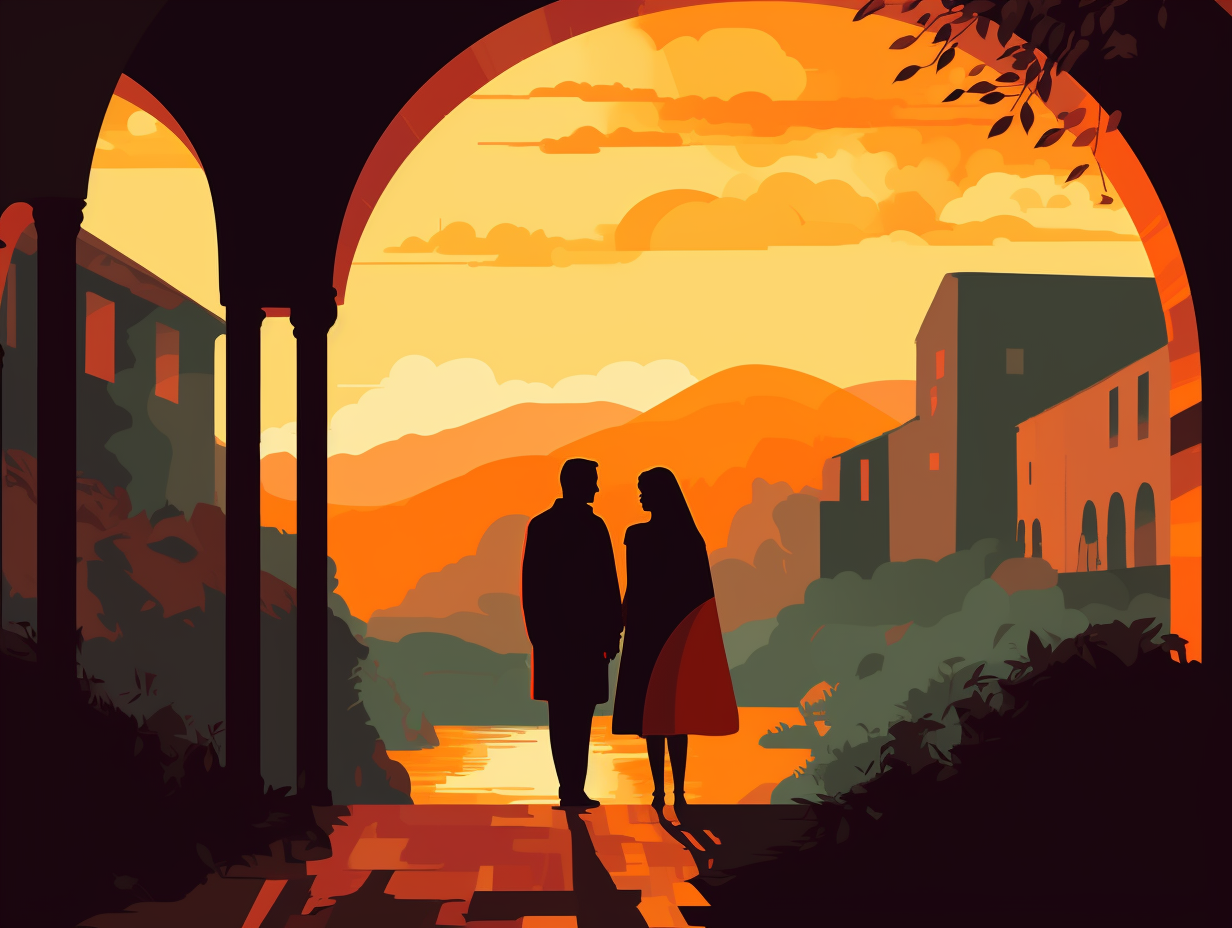
5. Satan's Ancient Doughy Playground
Before gluten-free was a thing and bakeries were considered a haven instead of Satan's doughy playground: Pompeii had around 35 commercial bakeries that supplied the town with a smorgasbord of bread, complete with their own mills, ovens, and industrial bread-making machines, with one such bakery discovered with 80 abandoned loaves in its oven at the time of the volcanic eruption.
Source => historyandarchaeologyonline.com
6. Pompeii's Cribs: Villa Edition
Instead of going mosaic loco, Pompeii's upper crust got their fresco fix in true HGTV style, turning their private villas into jaw-dropping art galleries: Known for their understated extravagance, wealthy Pompeiians adorned their homes with intricate frescos and commissioned sculptures to celebrate emperors, imperial family members, and important local citizens, mostly displayed in rooms and gardens, while saving the giant statues for public buildings like the Forum.
Source => pompeiitours.it
7. Bustling, Horsing Around Pompeii Streets
In ancient Pompeii, the streets were just as chaotic as a modern-day city but with more horsing around: Traffic flowed through multiple routes with vehicles ranging from two-wheeled carts to larger wagons with advanced steering systems, while the streets were designed to handle water with high kerbs and crossing stones, all marked by wear patterns that reveal the exact direction of travel.
Source => world-archaeology.com
8. Luxurious Gymnasium Gossip
Ever wonder how ancient Romans kept their figure with all those gladiator-themed soirees and calorific Bacchanalian feasts? It was all thanks to their Gymnasiums, the trend of the time. And just like how we love our high-tech gyms today, Pompeii's Gymnasium was not without its silver luxuries: It featured an elaborate thermal bath, a state-of-the-art furnace, and was even the site of an ancient steroid scandal (of sorts) with the discovery of silver objects and wax tablets detailing the sale of two slaves. Additionally, the Gymnasium has now reopened, complete with a TMZ-worthy entrance mosaic and subtly boasting frescos that give us a sneak peek into the athletic lives of our dearly-departed Romans.
Source => pompeiisites.org
9. Volcanic Pre-Party Pompeii
Before Mount Vesuvius threw a volcanic tantrum and grounded Pompeii to ash: this ancient party town was bursting at the seams with 15,000 lively inhabitants, who, between sips of vinum and bites of garum-slathered bread, indulged in impressive city luxuries like a state-of-the-art amphitheater, picturesque temples, bustling food markets, swanky baths, and an aqueduct that would make modern plumbers green with envy.
Source => mymodernmet.com
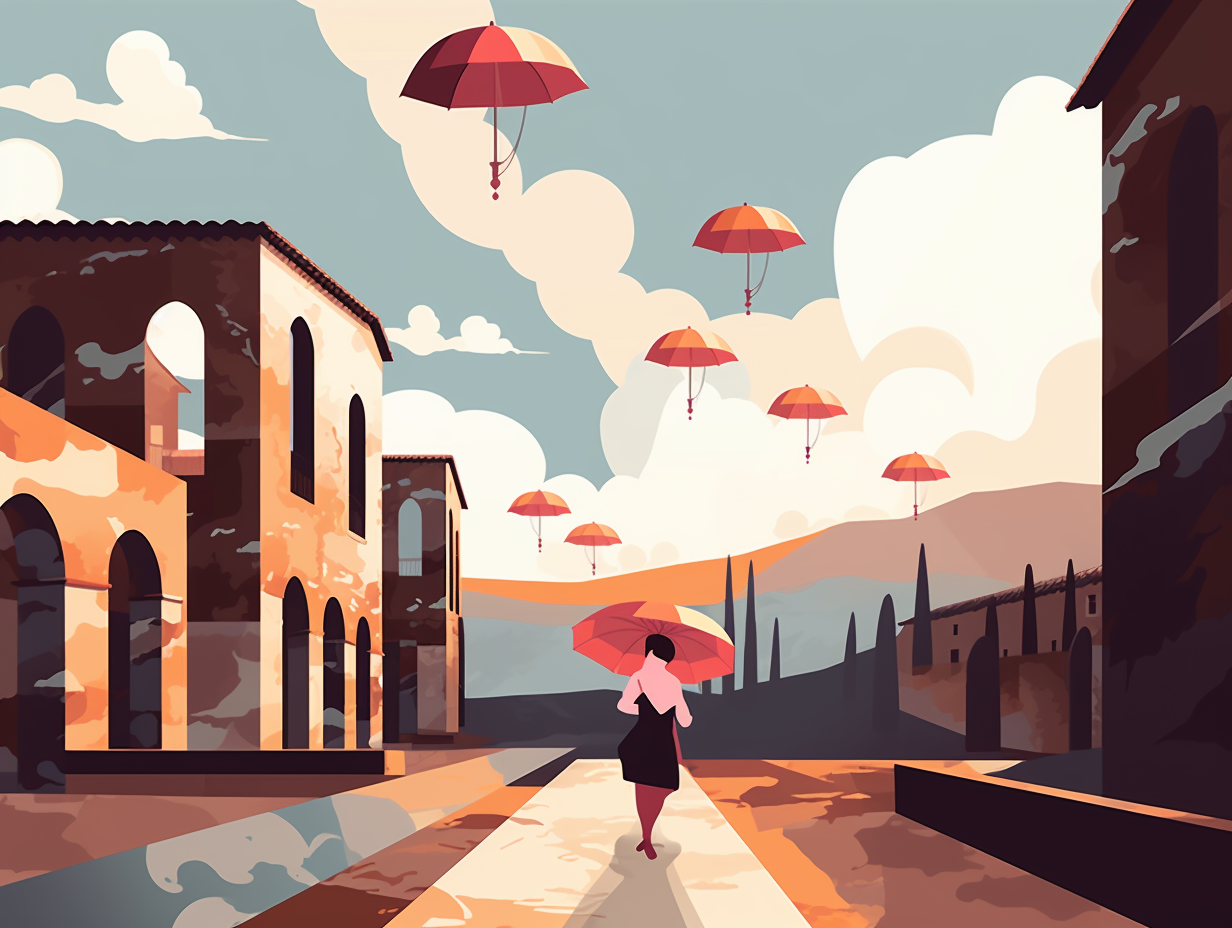
10. Catastrophe Accessorizing
Next time you're experiencing a volcanic eruption, don't forget the essentials: your handy dandy amulet box! That's right, even ancient Pompeii citizens knew the importance of accessorizing during catastrophes: Archaeologists discovered an array of amulets, including deities and phallic-shaped ornaments, in a wooden box at the "House of the Garden" – likely used by a woman for protection against bad luck or as jewelry. This peculiar collection, which also contained glass beads, mirrors, necklace pieces, and glazed ceramic ornaments, offers a glimpse into Pompeii's fashionable superstitions amidst the chaos of Mount Vesuvius' devastating eruption in A.D. 79.
Source => livescience.com
11. Ancient Roman Springer Showdown
Who knew the ancient Romans liked the Jerry Springer show? Turns out, they had their own version of a rowdy audience smackdown back in 59 AD: The oldest known Roman amphitheatre in Pompeii, built in 70 BC, could accommodate a whopping 20,000 viewers but was closed for a decade by the Senate of Rome after a particularly nasty brawl broke out between spectators from Pompeii and Nocera. Thankfully, it had a comeback tour after the earthquake of 62 AD.
Source => pompeiisites.org
12. Pompeii Spa and Gossip Hub
Stepping into the ancient world of spa and gossip à la Roman style: In Pompeii, affluent citizens enjoyed luxurious bathhouses with heated floors, private water supplies regulated by a ball float, lead pipes, bronze valves, and individual bronze bathtubs, while public baths featured separate rooms for cold water, steam, and tepid baths, becoming a popular social hub for both men and women.
Source => plumbingsupply.com
Related Fun Facts

